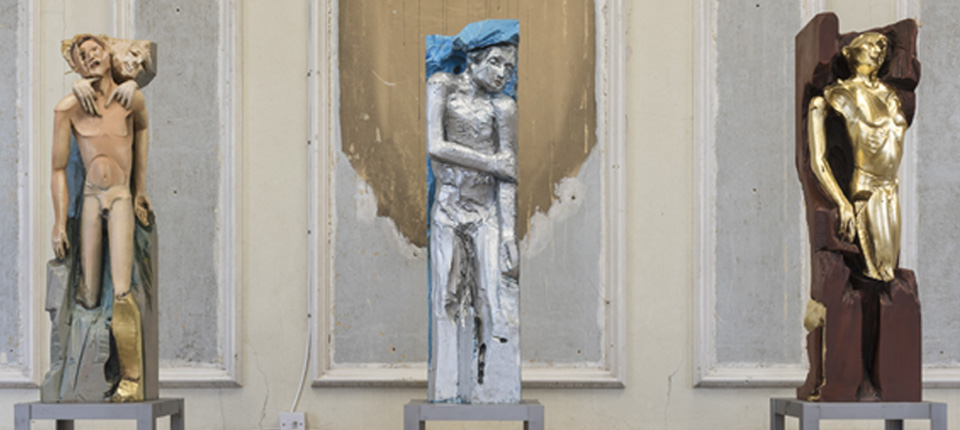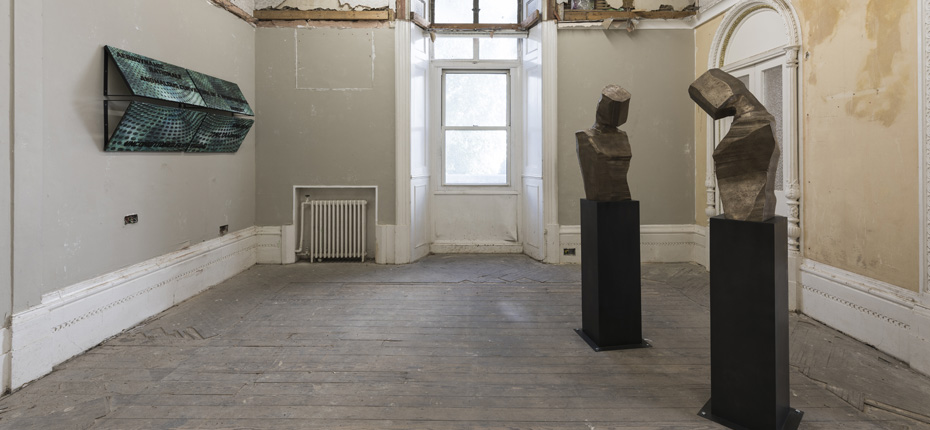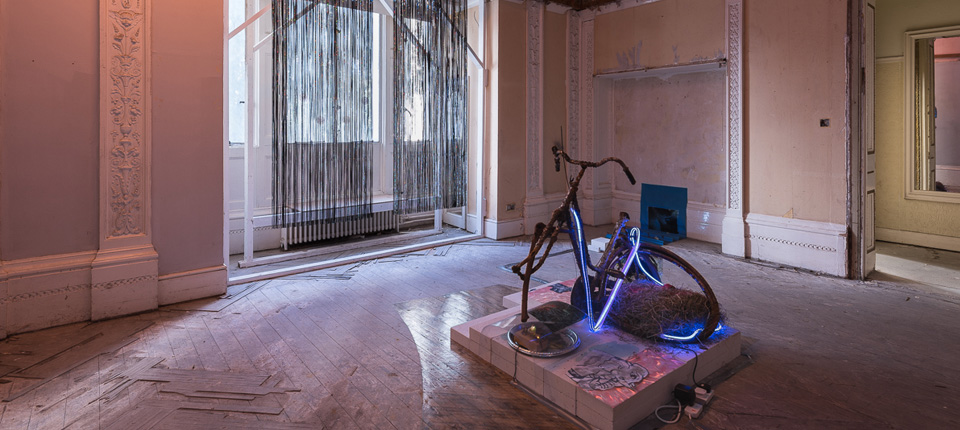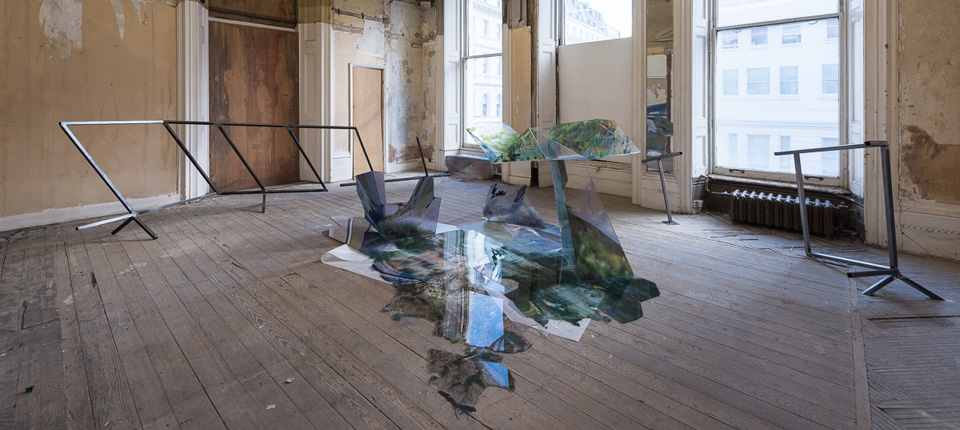Exhibition XV
The National or the Skip: The Averard Hotel

Mehraneh Atashi // Florian Auer // Neïl Beloufa // Nathaniel Mellors // Rory Menage // Matthew Monahan // Christopher Page // Naïmé Perrette //Pietro Roccasalva // Mamali Shafahi // Richard Woods// Curated by Alex Meurice and Matt Mottahedan
‘The National or the Skip’ operates from a place of doubt. Doubt around the separation of art and space, the relation of surface to mass, significance and irrelevance, value and trash. It takes its name from a remark made by Francis Bacon in an interview with David Sylvester. Bacon’s binary attitude to his completed paintings – if they didn’t belong in the National Gallery, they were destined for the skip – suggests a profound doubt about the quality of his work. The ‘National or the Skip’ thus becomes a choice between care and neglect, posterity and invisibility, even life and death.
The Averard Hotel, as a ‘readymade’ exhibition space, obliges that we ask the same question as Francis Bacon. What is worth saving? What must be destroyed? Happenstance layers of its history stage the connection between temporality and value. Like a cadaver, it fascinates us with clues to a lost past and uncertain future. The artists exhibited here deploy a wide range of mediums, including sculpture, painting, video and installation. Many of the works are connected by the unreliability of material appearance or unstable chronologies. The encounter of sculpture’s atemporality with the immateriality of virtual images undermines stable readings of status and value. In ‘The National or the Skip’, doubt displaces irony as a productive approach to contemporary culture.



















